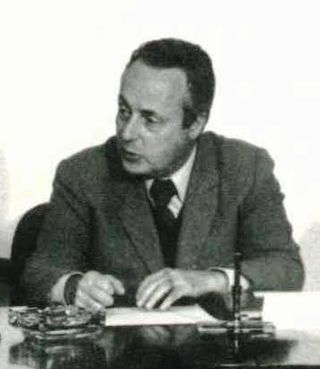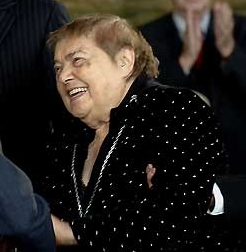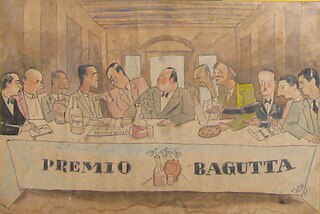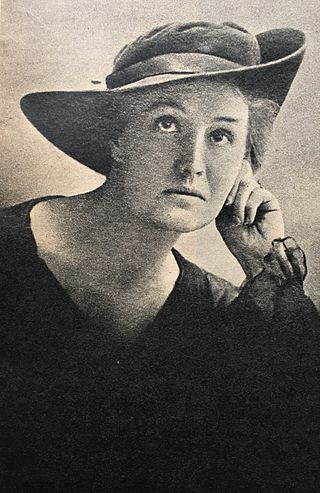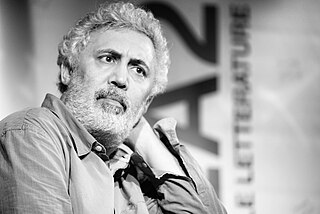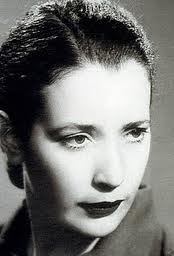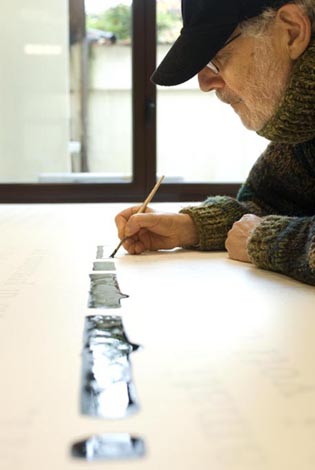Works
Il resto del cielo consists of twenty-five short compositions, none longer than fourteen verses, that speak to the general problematics of communication, all of which is underscored by a constant coincidentia oppositorum. Seemingly simple verses, they speak eloquently to the narrating voice's quotidian landscape.
His first novel, Per dove parte questo treno allegro (1988), is the story of a typical relationship of the 1980s between father and son. A troubled rapport between them, the father is an adventurous businessman who, while deep in debt, has squirreled away a few hundred thousand dollars in Switzerland. The son, an insipid thirty-year-old, who acts half his age, is a do-nothing with strange habits. While the two spend a few strained weeks together, their lives eventually begin to find some similarities.
With his second novel, Gli sfiorati (1990), Veronesi approaches the family thematics in a much more dramatic fashion. A family recomposed of two previously split ones, here too the father and son experience a troubled relationship. Mete, however, finds comfort in a developing rapport with his beautiful stepsister. All this takes place in Rome, intertwined with other narratives of various social types that one might expect to find in such a chaotic metropolis that Veronesi depicts. Experimental, in some ways, this novels verges on the fantastic, while the author offers up a portrait of the early 1990s and its polymorphous, youthful generation, represented herein by the literal, and metaphorical, sign of "schiumevolezza."
Faithful to the theme of troubled relationships between two people of different generations, Venite venite B-52 (1995) changes the dynamics to that of father-daughter. As he did in his previous novels, especially in Gli sfiorati, here too Veronesi offers up a gallery of extraordinary characters, beginning with the father, Ennio Miraglia, a representation of the 1980s consumerist Italy, and his daughter Viola, whose desire to free herself of her father's Italy is underscored in the novel's title, her hopes that the American bombers come and destroy that which she abhors.
La forza del passato (2000; Premio Viareggio L. Repaci and the Premio Campiello) continues the father-son relationship. This time, however, the father is absent (dead), and – again different from before – we move from a positive memory of the dead father to one that questions his son's knowledge of who he truly was. Gianni Orzan is a writer of children's books whose life is suddenly shattered when he realizes that what he always believed about his father, and by extension of himself, may have all been a façade. Through Gianni's eventual stream-of-consciousness, both he and the novel's reader constantly shift between the present and, through the character's memory, the past.
Ring City (2001) is a "children's novel,” for lack of a better term. As such, it figures as a wonderful companion piece to La forza del passato, as it is surely a book Gianni Orzan would have written. Topolino (Mickey Mouse) must confront the Fosterman clan, who has taken over the once tranquil city of Vocalia, transforming it into a giant boxing ring.
Caos calmo (novel) [ it ] (2005) won him Italy's most prestigious award, the Strega Prize. Having lost his wife to a natural death, Pietro Paladini is able to recover his existential bearings only after re-examining life from its metaphorical underbelly, in his subsequent dealings with the people in his life, especially when he unorthodoxly hangs around in front of his daughter's school.
An assiduous essayist, much of the material in his non-fiction collections appeared in various daily and weekly newspapers and magazines, and serials, which include: Il manifesto , Epoca, Il Gambero Rosso, La Gazzetta del Prato, l'Unità , Nuovi Argomenti, Panta, Corriere della Sera . These books to date include: Cronache italiane (1992) and Live. Ritratti, sopralluoghi e collaudi (Bompiani, 1996), each of which originate chiefly from his journalistic writings. Occhio per occhio. La pena di morte in quattro storie (1992), instead, is an integral study of the death penalty and how it is administered in four different localities around the world: Sudan, Taiwan, the Soviet Union, and California. In 2002, Bompiani brought out his previous two collections, together with his “Nuove cronache" (1996–2002), in Superalbo. Le storie complete.
In addition to the above, he has also written numerous introductions of various sorts for numerous books that range from novels to collections of essays on many topics, including soccer and rock music. Most recently, he ventured into the world of theatre with his No Man's Land (2003), a drama originating from and similar to Danis Tanovic's film of 2001, this time however with a good dose of Veronesi's caustic irony.
Veronesi collaborates with numerous newspapers and licterature magazines. He is also the founder of the publishing house Fandango Libri along with Domenico Procacci, and of the web radio Radiogas.
In 2010, italian newsmagazine La Repubblica reported that Fandango's artistic director, as part of the promotional campaign of new Veronesi's book, titled “XY", have announced to have inserted some fictional articles in italian language Wikipedia to attract new potential buyers. [3] Shortly after he publicly apologized, [4] [5] claiming also to have included just one article in it.wiki. [6]

